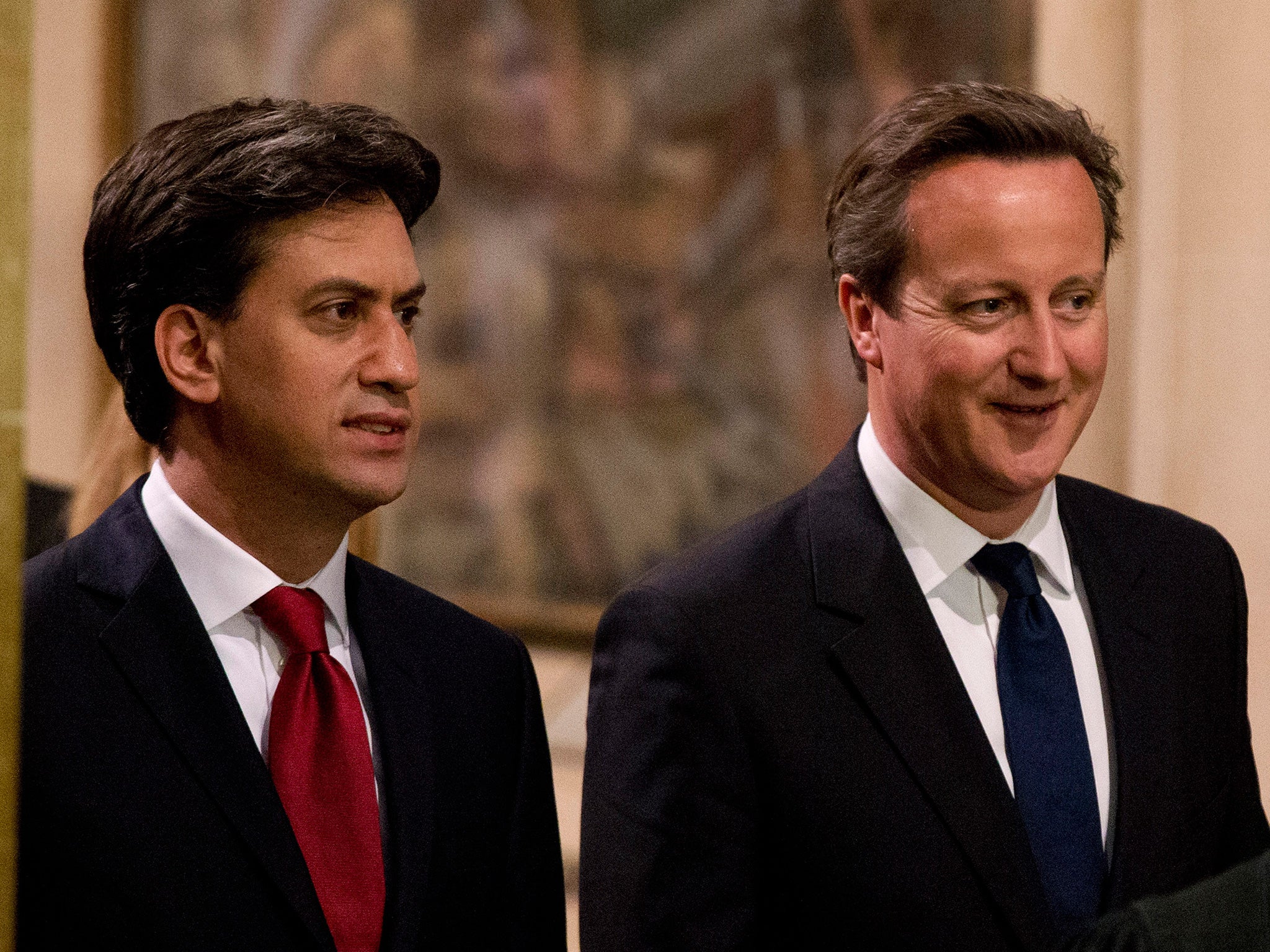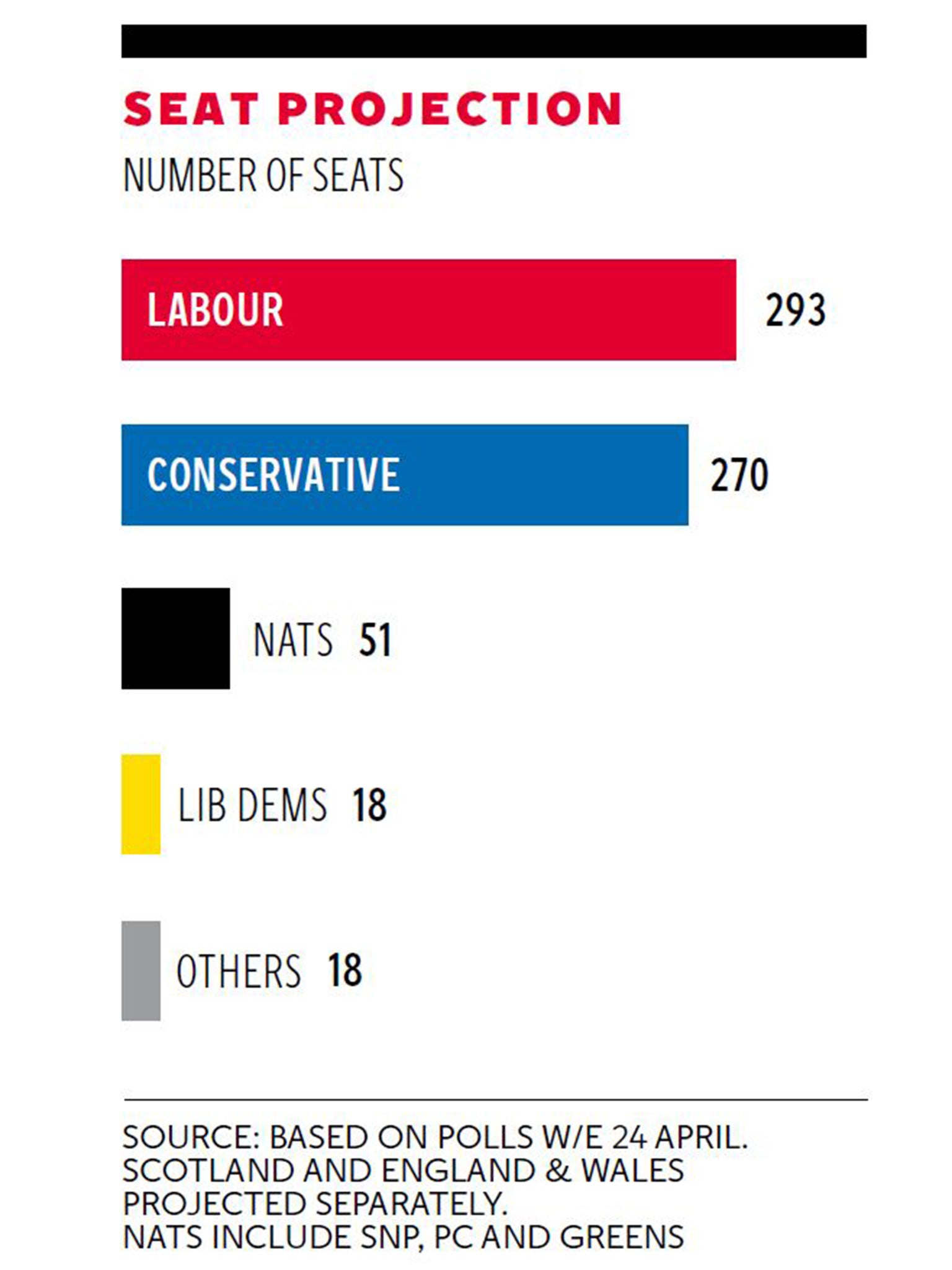General Election 2015: Tories and Labour still deadlocked in the polls with support for smaller parties growing
Ukip have remained stubborn on 14 per cent, while the SNP continue to surge ahead

Your support helps us to tell the story
From reproductive rights to climate change to Big Tech, The Independent is on the ground when the story is developing. Whether it's investigating the financials of Elon Musk's pro-Trump PAC or producing our latest documentary, 'The A Word', which shines a light on the American women fighting for reproductive rights, we know how important it is to parse out the facts from the messaging.
At such a critical moment in US history, we need reporters on the ground. Your donation allows us to keep sending journalists to speak to both sides of the story.
The Independent is trusted by Americans across the entire political spectrum. And unlike many other quality news outlets, we choose not to lock Americans out of our reporting and analysis with paywalls. We believe quality journalism should be available to everyone, paid for by those who can afford it.
Your support makes all the difference.The election still looks deadlocked. Neither the Conservatives nor Labour have secured a decisive edge, with both now standing at 33 per cent apiece, while support for the smaller parties appears to be standing up to the heat of the election campaign.
Indeed one of those parties, the SNP, has now claimed centre place on the election stage. Having discovered that attacks on Ed Miliband and Labour’s economic competence were not driving voters in their direction, the Conservatives are now trying to focus voters’ minds on the prospect that a minority Labour government could be beholden to the SNP.
The SNP certainly seems to be heading for a major success. During the last week a YouGov poll confirmed the message of a poll conducted 10 days earlier that support for the party is now little short of 50 per cent north of the border. Further constituency polling by Lord Ashcroft has also suggested the SNP may be pulling yet further ahead.
Are you undecided about who to vote for on 7 May? Are you confused about what the parties stand for and what they are offering? Take this interactive quiz to help you decide who to vote for...
Given also the Liberal Democrats’ difficulties – the party remains stuck at the 8 per cent with which it began this campaign – there is clearly a significant chance that Ed Miliband will have to rely on the SNP to gain the keys to Downing Street.
Indeed, our latest poll of polls points to Labour winning no more than 293 seats, which even with the backing of 18 Liberal Democrats and four likely supporters from Northern Ireland, would still leave Mr Miliband with just 315 votes, 11 short of what he will need for an overall majority.

The Tories’ response has been to play the English card. Not only have they suggested that England would lose out if Labour were dependent on the SNP, but also they have reminded us of their plans for “English votes on English laws.”
The prospect of the SNP holding the balance of power is certainly an unattractive one for many voters in England and Wales. According to YouGov no less than 65 per cent think it would be “a bad thing.” But perhaps most importantly the prospect is particularly unpopular amongst Ukip supporters, 80 per cent of whom think it would be a “bad thing.”
So far Ukip support has remained stubbornly on the 14 per cent mark. Nothing the Conservatives have said has persuaded Nigel Farage’s followers to return to the Tory fold. David Cameron now seems to be hoping that a dose of English nationalism will finally do the trick.
John Curtice is Professor of Politics, Strathclyde University
Join our commenting forum
Join thought-provoking conversations, follow other Independent readers and see their replies
Comments